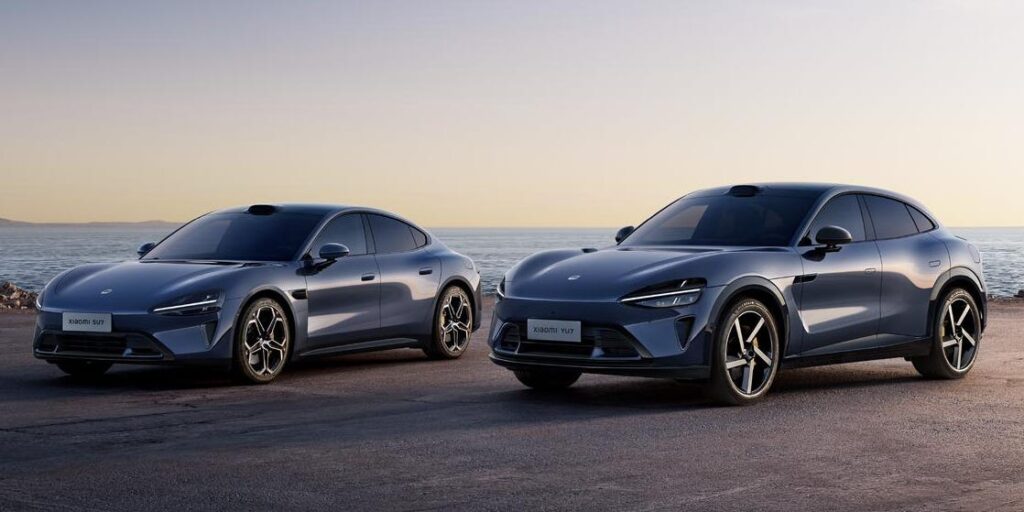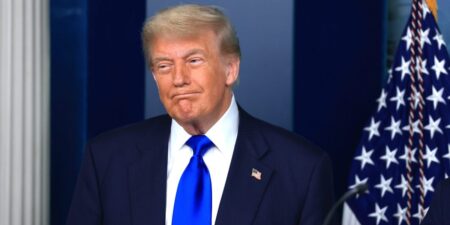One of Tesla’s biggest Chinese rivals just unveiled a new EV — and it could be a major headache for Elon Musk.
Smartphone maker Xiaomi showed off the YU7 at an event in Beijing on Thursday, with the electric SUV set to compete directly with Tesla’s best-selling Model Y.
Xiaomi said the YU7 was a “luxury high-performance SUV,” with high-tech features including intelligent door handles and a panoramic “hypervision” display below the windshield.
The company said the YU7 has a maximum speed of 253 kilometers (157 miles) an hour and can hit 100 km/h in 3.23 seconds.
It will have a maximum range of 835km (518 miles) and can add 620km (400 miles) of range in 15 minutes of charging, Xiaomi said.
Xiaomi did not say how much the YU7, its second EV, will cost. In a social media post before the unveiling, CEO Lei Jun said the SUV would go on sale in July.
The YU7 threatens to pile the pain on Tesla, which is already battling underwhelming sales in China amid brutal competition from local rivals.
Morgan Stanley analysts led by Adam Jonas and Andy Meng wrote in a note previewing the YU7’s launch that the new SUV would be another challenge to Tesla.
“We find market expectations around Tesla’s near-term automotive business remain too high and do not fully reflect the quantum of incremental capacity and competition coming out of China, ultimately having an impact in international markets. Understanding this will help make more sense out of Tesla’s ‘all-in’ push into autonomy,” they wrote.
The bank’s analysts predicted the YU7 would replicate the sales success of Xiaomi’s SU7, which notched up 120,000 pre-orders in 36 hours when it went on sale last year, saying the Model Y rival had “stunning design” combining the looks of a Ferrari or Aston Martin with the price tag of a Volkswagen.
“The YU7 is just the latest sign that Chinese tech firms are taking EV performance and cost to the next level. China may have already won the EV battle,” the Morgan Stanley analysts wrote. Both the SU7 and YU7 were years ahead of comparable models offered by Ford, they added.
While both Xiaomi cars are only available in China, that may not be the case for long. Xiaomi confirmed in March that it aimed to sell EVs in overseas markets by 2027.
Morgan Stanley’s analysts estimated that competition from Chinese rivals would affect Tesla’s international sales.
They wrote that market expectations around Tesla’s near-term automotive business remain “too high,” adding that the quality of China’s EV offerings justified Musk’s push to pivot the company toward autonomous vehicles.
Xiaomi’s EV push hasn’t all been plain sailing. Its sales have reportedly dipped over the past month amid claims of misleading marketing on the high-end SU7 Ultra and concerns over a fatal crash involving an SU7 in March.
The crash, in which three people died after their SU7 hit a cement barrier shortly after disengaging from driver assist mode, sparked a regulatory crackdown on autonomous driving features in China.
Read the full article here
















